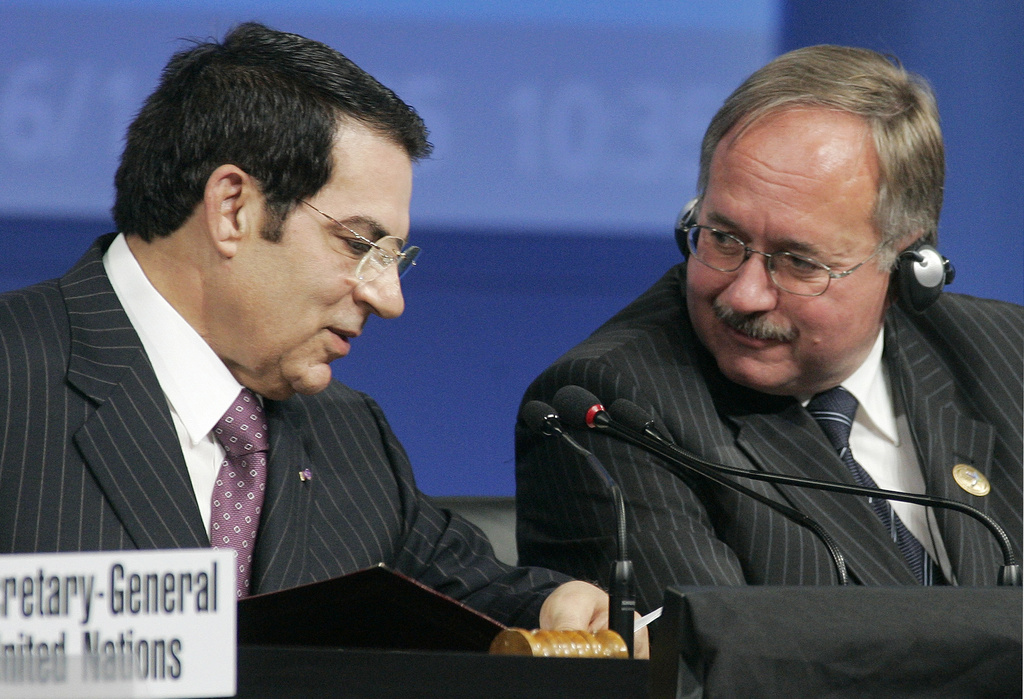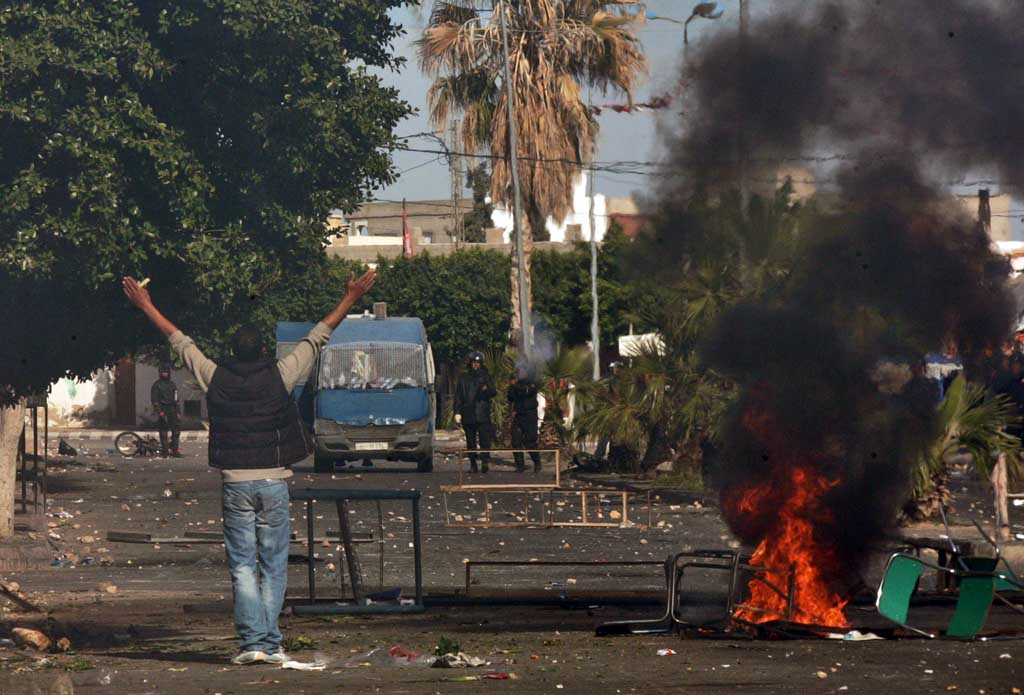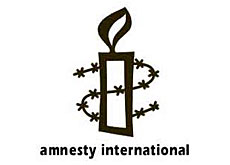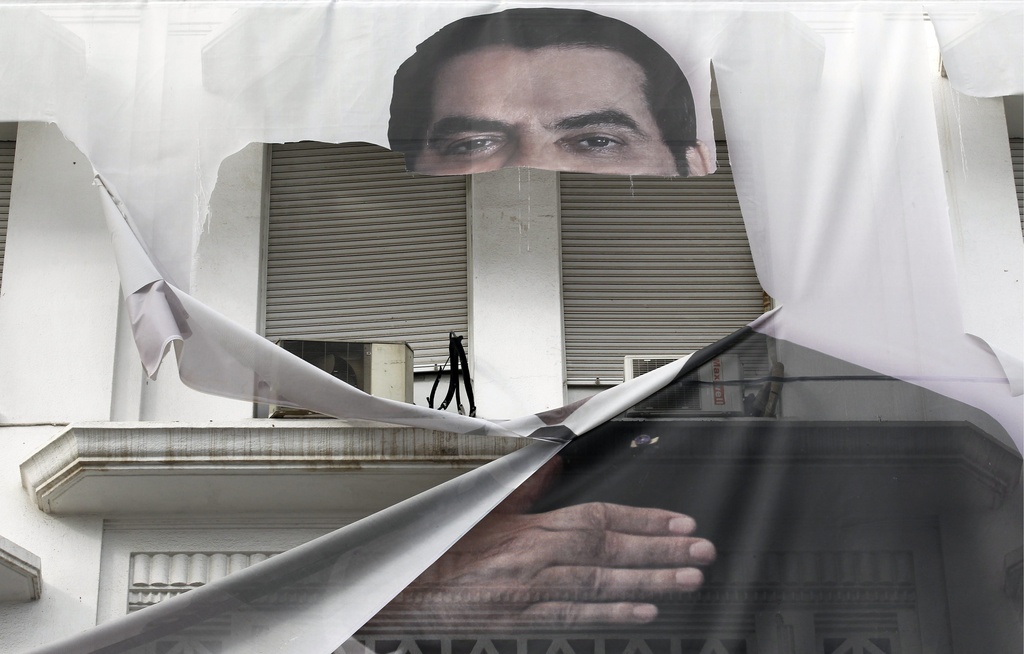Swiss freeze Tunisian accounts

Five days after he fled his country, Switzerland has frozen accounts and assets connected to deposed Tunisian President Zine al-Abidine Ben Ali, with immediate effect.
The seven-member cabinet also agreed to freeze any assets belonging to Laurent Gbagbo of Ivory Coast, who is clinging to power despite having lost a presidential election to Alassane Ouattara in November.
“The government decided at its meeting today [Wednesday] to freeze any funds in Switzerland of the ex-Tunisian president and his entourage with immediate effect,” Swiss President and Foreign Minister Micheline Calmy-Rey said at a news conference in Bern.
Calmy-Rey said the freezing of assets would apply for a three-year period to allow time for the countries concerned to initiate criminal proceedings against the former regimes, which is a precondition to applying to Switzerland for judicial aid and ultimately the return of stolen funds.
The foreign minister said Switzerland would encourage Tunisia and Ivory Coast to take these steps.
40 names
Up to 40 names and organisations are included in the Swiss list for Tunisia. “Switzerland wants to avoid our financial system being used to embezzle funds from poor countries,” Calmy-Rey said.
Calmy-Rey noted that it was “very unlikely” that Ben Ali’s entourage had already removed assets from Switzerland as the banks were closely watching any Tunisian activity in recent days as required by their due diligence procedures.
She said there were indications that such attempts had been made to withdraw funds but declined to give further details.
The official Tunisian news agency TAP reported on Wednesday that a Tunisian prosecutor had opened an investigation into the overseas assets of the deposed president and his family.
TAP said the prosecutor’s office had decided to investigate bank accounts, real estate and other assets held by Ben Ali, his wife Leila Trabelsi and other relatives.
New law
A new Swiss law on returning illicit dictator funds, backed by the House of Representatives and the Senate, is due to enter into force on February 1, 2011.
Under the law, the cabinet can block contentious assets and will have up to ten years to launch action to confiscate the assets once they have been blocked. The confiscation of assets must be declared by the Federal Administrative Court.
Once returned, the funds must be used to improve quality of life for the wider population, strengthening the judicial system and the fight against crime.
In advance of the dictators’ assets law entering into force, the government relied on emergency powers granted by the Swiss Constitution to provisionally block possible Tunisian and Ivory Coast accounts.
The Swiss attorney general received two requests to freeze assets deposited in Switzerland by Ben Ali and his clan.
A spokeswoman said the motions were being examined. One was filed by Swiss lawyer Ridha Ajmi, who is calling for a criminal investigation and filed a motion that urgent measures be taken.
The new law on returning illicit dictator funds deposited in Swiss banks was approved by parliament last year.
It was felt there was a need to enshrine such procedures in law as a result of the often weak legal system in states requesting the return of assets.
In some cases Switzerland was forced to hand the illicit assets back to dictators’ families instead of the state, as was the case in 2009 with funds deposited in Switzerland by former Zairean leader Mobutu Sese Seko.
Under the law the cabinet can block contentious assets and will have up to ten years to launch action to confiscate the assets once they have been blocked.
The confiscation of assets must be declared by the Federal Administrative Court. Any decision to block funds can also be appealed through the court.
Once returned, the funds must be used to improve quality of life for the wider population, strengthen the judicial system and fight against crime.
When dealing with PEP clients banks are obliged to exercise special care. That applies not just to dictators but also for elected politicians, Thomas Sutter from the Swiss Bankers’ Association told swissinfo.ch.
There are PEP databases banks can subscribe to and some banks maintain their own PEP lists. The leaders’ entourages are also important. In the Ben Ali case the entourage list included some 40 names, according to Swiss president Micheline Calmy-Rey.
The problem with PEP data, according to Sutter, is that someone can change overnight from “acceptable” leader to persona non grata. This makes it more difficult for banks to know when to alert the authorities to money laundering.
Illicit funds do not necessarily originate in the suspect country, as in the case of kick-backs for arms imports, for example, Sutter explained.

In compliance with the JTI standards
More: SWI swissinfo.ch certified by the Journalism Trust Initiative




You can find an overview of ongoing debates with our journalists here. Please join us!
If you want to start a conversation about a topic raised in this article or want to report factual errors, email us at english@swissinfo.ch.